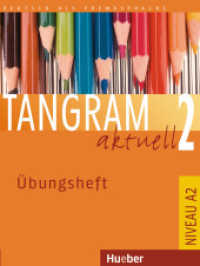Description
(Text)
The year 2009 was marked by a deep global economic crisis triggered by turbulence on the financial markets. The crisis has affected different countries' economies to differing degrees. The impact on national labor markets was even more severe, and wider in scope, than the resulting economic slump itself. It appears likely that the different institutions are (at least partly) to blame.
Against this backdrop, the 73rd ARGE meeting examined the relationships between institutions - labor market institutions but others as well - and labor market developments in times of crisis. The key question was whether and how institutions can serve as a "protective shield" for employment. The lectures focuses on the following aspects: European labor markets in international comparison, the role of labor market institutions in the crisis, labor market reforms and competition, labor force cohorts, meta-analysis of the minimum wage, and labor market regulation.
(Text)
The year 2009 was marked by a deep global economic crisis triggered by turbulence on the financial markets. The crisis has affected different countries' economies to differing degrees. The impact on national labor markets was even more severe, and wider in scope, than the resulting economic slump itself. It appears likely that the different institutions are (at least partly) to blame.
Against this backdrop, the 73rd ARGE meeting examined the relationships between institutions - labor market institutions but others as well - and labor market developments in times of crisis. The key question was whether and how institutions can serve as a "protective shield" for employment. The lectures focuses on the following aspects: European labor markets in international comparison, the role of labor market institutions in the crisis, labor market reforms and competition, labor force cohorts, meta-analysis of the minimum wage, and labor market regulation.
(Table of content)
Aus dem Inhalt:
J. Möller, Germany's Job Miracle in the World Recession-Shock-Absorbing Institutions in the Manufacturing Sector - W. Eichhorst / M. Feil / P. Marx, Crisis, What Crisis? Patterns of Adaptation in European Labor Markets (Comment: A. Mertens) - J. Boysen-Hogrefe / D. Groll / W. Lechthaler / C. Merkl, The Role of Labor Market Institutions in the Great Recession (Comment: C. Schnabel) - A. Herzog-Stein / C. Logeay, Labor Market Reforms, Hysteresis, and Business Cycles in Germany: A SVAR Approach to Explain Unemployment Developments (Comment: J. Jerger) - M. Dietz / M. Stops / U. Walwei, Safeguarding Jobs through Labor Hoarding in Germany (Comment: O. Hübler) - B. Boockmann, The Combined Employment Effects of Minimum Wages and Labor Market Regulation; a Meta-Analysis (Comment: A. Spitz-Oener)
(Author portrait)
Prof. Dr. Klaus F. Zimmermann ist Direktor des Instituts zur Zukunft der Arbeit (IZA) und zugleich Präsident des Deutschen Instituts für Wirtschaftsforschung (DIW Berlin).








